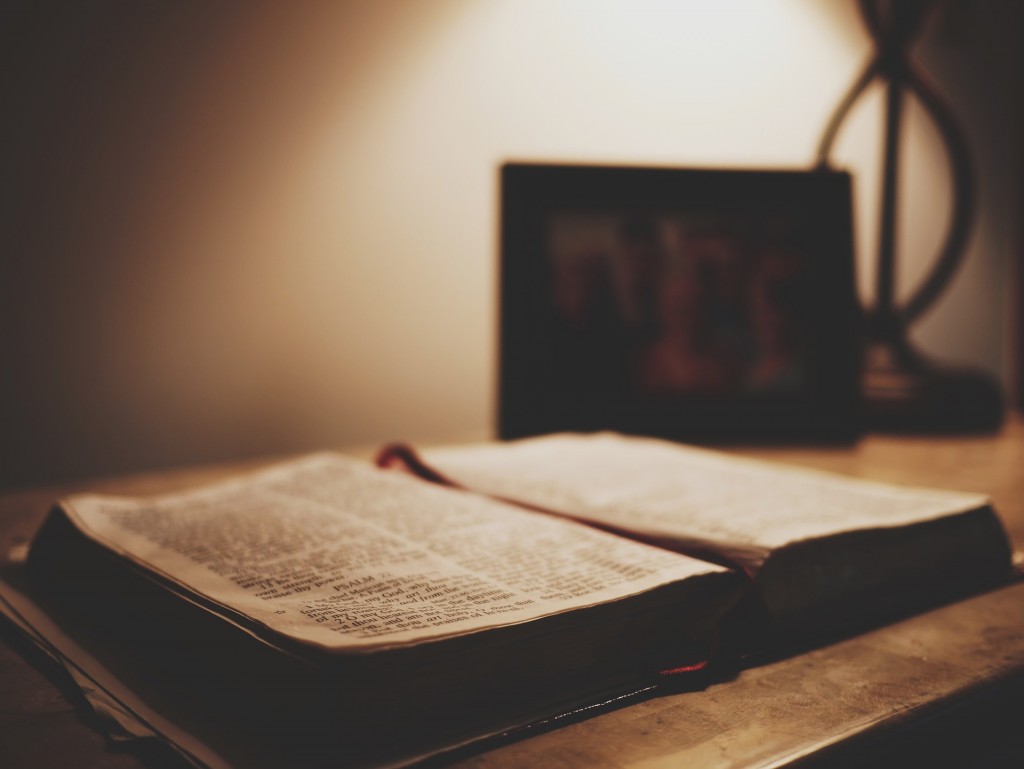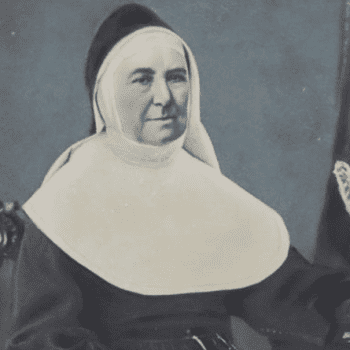
I am exhausted. It’s not exactly a new state of mind—this has been pretty consistent throughout years of college and grad school and city living and more school and teaching. And, I’m not the only one. My teacher friends are exhausted. My working and grad school friends are exhausted. My parent friends have given a new depth of meaning to the word exhausted. Pretty much, what seems consistent is that not a one of us will ever sleep again. What hasn’t always been as consistent as my need to sleep, however, is my prayer life.
Call it the breakdown of habituation: I grew up praying at night and reading devotionals at night just before my extremely routine bedtime. However, as homework took longer and longer, my prayers and spiritual reading got pushed later and later. Eventually, I got to the point where my mornings mirrored an evacuation routine and my nights ended only when my body shut down mid-activity. This was not a terribly helpful way of living for practicing a consistent prayer life. While I was in college and grad school, it was at least easy to slip into the chapel thought the day (thank you Catholic education) but after graduation, getting to Church became less and less frequently an easy-access option.
I realized that I needed a routine. Not just for my general life, but specifically for my spiritual life. Humans, or at least I, thrive with routine. Not that I don’t love to be spontaneous, because I do. But spontaneity has, in my own life at least, an inverse correlation with actually finishing any of the things I need to get done. Knowing myself, if I only pray when I am spontaneously moved, I am basically placing my spiritual life in the hands of drivers who don’t understand the notion of three second gaps between cars on the freeway. Which in all ways seems like a less than ideal call.
Fortunately, the Church seemed to get my struggle—she tells us in the Catechism of the Catholic Church that
We cannot pray ‘at all times’ if we do not pray at specific times, consciously willing it These are the special times of Christian prayer, both in intensity and duration. (CCC 2697).
Taking a cue from my experience scheduling phone calls with friends, I realized I needed a routine that explicitly set aside time each day for “catching up” with God. That’s why I have spent the past month seriously attempting my friend’s suggestion I pray the Divine Office.
The Divine Office, or properly the Liturgy of the Hours is, according to the USCCB,
Is the daily prayer of the Church, marking the hours of each day and sanctifying the day with prayer. The Hours are a meditative dialogue on the mystery of Christ, using scripture and prayer.
Now, this might sound super intense, but in fact I’ve been struck by how it’s actual practice, particularly since I started out with one hour (it’s not a 60 minute prayer, don’t panic; the times of the prayer are called “hours”) and am only now incorporating a second hour, is actually pretty great for those of us with hectic days.
First, this kind of prayer has a clear temporal structure. It follows the “Tradition of the Church [and] proposes to the faithful certain rhythms of praying intended to nourish continual prayer” (CCC 2698). The rhythm idea is important to the forming of a habit. For me, it means not turning my phone off night mode until I pray in the morning (check out iBreviary for an app, or just go to the Divine Office website, if you don’t have the book copies) and praying Evening Prayer just before my sleep time alarm tells me to shut my phone down. You might try this, or you might start with Night Prayer, because it’s shorter, or Daytime Prayer, because you can do it at lunch. What is important is beginning to practice turning to God just for a moment in your day, making that time consistent, in order to establish a routine.
The second reason I am a fan of the Divine Office is that it is liturgical—the prayer of the People of God. Through it, all of us, laity, religious, and priests, offer a sacrifice of praise through the word of God, centered around the Eucharistic sacrifice of the Word of God. By praying in union with the Body of Christ through an offering of the words God gives us in Sacred Scripture, we are orienting our prayer towards the practice of the Church’s offering the Word to the Father in the Sacrifice of the Mass. We are praying not alone, but in union with the whole of the Church. If the Eucharist is the heart of our spiritual life, the Divine Office isn’t unlike the blood that is constantly returning to and coming forth from that central organ to enliven the Body.
Moreover, this prayer isn’t just teaching us to live a Eucharistically-focused life; it incorporates aspects of practice in vocal prayer and meditative prayer—it is teaching us how to pray. Vocal prayer is profoundly human: our
need to involve the senses in interior prayer corresponds to a requirement of our human nature. We are body and spirit, and we experience the need to translate our feelings externally. (CCC 2702)
The Divine Liturgy helps to teach us how to pray on our own at other times by giving us the words to pray aloud during our participation in this prayer. I’ve noticed that it’s easier for me to pray with spontaneous vocal prayer when I have the habit of praying I learned through the Office that day. It also teaches meditation by continually drawing us back towards the Word we encounter through the words of Sacred Scripture. The Divine Office gives us content through which we
deepen our convictions of faith, prompt the conversion of our heart, and strengthen our will to follow Christ. (CCC 2708).
The Divine Office is pretty incredible because it helps us move beyond the “I have no idea how to pray” stage. Slowly and steadily through this prayer, the Holy Spirit begins to guide us to deeper intimacy and union with Christ in our private, personal prayers.
Is my prayer life perfect? Hardly. If it was, I’d likely be in Heaven already, since ultimately the fullness of intimacy and union with Christ is beatitude. However, I have found that it is a lot better than mumbling some thank yous as I drift off to sleep. I can also tell you that the more frequently I turn to God during the day, the more frequently I remember to turn to God during the day. This frequent turning to God is pretty key to my practice of the whole “choose good/avoid evil” part of becoming a saint. Moreover, when I’m exhausted, this helps me to know what to pray, even when I feel less than up to creativity in prayer. Praying the Office tells me what to pray and more or less when to pray it, and it’s super helpful in the most practical of ways.
So if, like I have, you struggle to incorporate prayer into your daily life, I cannot encourage you enough to begin with praying the Divine Office. After all, weary as we all might be from the whole of living, I figure if it is eternal rest to dwell in the presence of God, well, in this life we participate in that rest through our prayers. So making the time to rest in God’s presence through prayer when it is so easy to be hectic isn’t a better way of clearing our schedule—it’s precisely how we find ourselves able to rest in Him.












